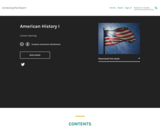
Word Count: 86128
(Note: This resource's metadata has been created automatically by reformatting and/or combining the information that the author initially provided as part of a bulk import process.)

Word Count: 86128
(Note: This resource's metadata has been created automatically by reformatting and/or combining the information that the author initially provided as part of a bulk import process.)
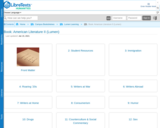
This is a resource designed to accompany a course on American Literature II. It has been found to be appropriate for California Community College courses with the following C-ID: ENGL 135
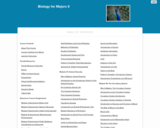
The second in a two-course sequence, this gateway biology course provides a strong foundation in principles of biology for students majoring in life science, medical, and healthcare fields. Primary topics include the history of life; viruses, prokaryotes, protists, and fungi; plant diversity, structure and functions; animal diversity and body systems (nervous, endocrine, reproductive, sensory, circulatory, respiratory, immune, digestive, excretory, musculoskeletal, and integumentary), and the ecology of life. The course incorporates Cerego practice sets to aid students as they learn relevant vocabulary.
This course was developed by Lumen Learning, with contributing work from Shelli Carter and Monisha Scott. The course is based on the OpenStax textbook Biology, supplemented with relevant materials from Khan Academy and videos from multiple sources. Original practice activities were authored by Shelli Carter and Lumen Learning in the development of this course.
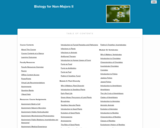
Biology for Non-Majors II introduces students to the basics of the scientific process and covers some of biology’s most compelling topics surrounding the history and diversity of life, including discussion on the different kingdoms of life, with focus on plants and animals, as well as an introduction to ecology. Designed for non-life science majors, this course is the first in a two-part series that completes a survey of biological principles.
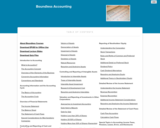
An introductory text covering a broad range of topics including Controlling and Reporting of Intangible Assets; Valuation and Reporting of Investments in Other Corporation; The Time Value of Money; Special Topics in Accounting: Income Taxes, Pensions, Leases, Errors, and Disclosures.
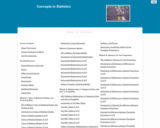
Using highly interactive learning design, this Concepts in Statistics course provides students with a strong understanding of fundamental principles that guide the study of statistical inference. Drawing from Open Learning Initiative (OLI) source content, this course’s simulations and lab-style synthesis activities invite hands-on exploration of statistical concepts. Students learn to summarize data graphically and numerically; examine relationships among quantitative data; understand the role of probability and probability distributions; link probability to statistical inference; and conduct foundational statistical calculations and analyses.
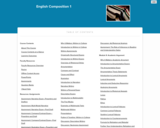
This course is a comprehensive English Composition course, covering all of the essential content about the writing process, rhetorical styles, and writing successfully for college. Students learn about critical thinking, analysis, argumentation, reflection, and making sound rhetorical choices to write effective academic essays. Students also learn techniques for reading, interpreting, and utilizing a variety of sources in their writing. The course content covers key grammatical concepts, multimodal writing, collaboration, research skills, and proper documentation. The course design allows students a way to master concepts and skills in small bites, through engaging practice activities and frequent questioning with targeted feedback.
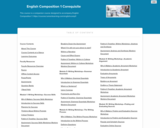
This course is a comprehensive English Composition Corequisite course, covering all of the essentials for writing successfully in college (in English Composition 1, https://courses.lumenlearning.com/englishcomp1/), with additional practice on key concepts. Students learn about critical thinking, reflection, reading, the writing process, analysis, argumentation, the research process, citation, and grammar.
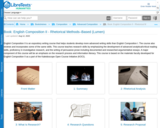
English Composition II is an expository writing course that helps students develop more advanced writing skills than English Composition I. The course also reviews and incorporates some of the same skills. This course teaches research skills by emphasizing the development of advanced analytical/critical reading skills, proficiency in investigative research, and the writing of persuasive prose including documented and researched argumentative essays. A major component of this course will be an emphasis on the research process and information literacy. This course is based on the materials faculty developed for English Composition II as a part of the Kaleidoscope Open Course Initiative (KOCI).

This course develops students’ writing at the college level, using materials organized around essential parts of the academic writing process. Key topics include rhetorical situations; the editing process; types and modes of academic writing; the research process; citation practices; informative and persuasive writing.
This course is designed to introduce you to the writing, reading, and thinking skills you will need for success at the college level. The course will emphasize personal, reflective, and expository writing. It will also help you develop critical reading skills, which will assist you as you analyze specific writing techniques and strategies you can use to improve your own writing.
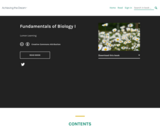
Word Count: 222624
(Note: This resource's metadata has been created automatically by reformatting and/or combining the information that the author initially provided as part of a bulk import process.)
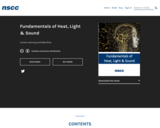
Word Count: 217588
ISBN: 978-1-998755-16-5
(Note: This resource's metadata has been created automatically by reformatting and/or combining the information that the author initially provided as part of a bulk import process.)
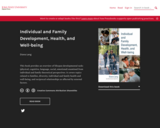
This book provides an overview of lifespan developmental tasks (physical, cognitive, language, social, emotional) examined from individual and family theoretical perspectives. It covers topics related to families, diversity, individual and family health and well-being, and reciprocal relationships as affected by external factors.
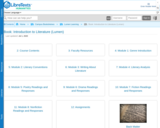
This course is designed to introduce students to the study, analysis, and interpretation of literature across multiple genres. Key topics include literary genres and conventions; how to read and write about literature; literary analysis; and readings and responses in the genres of poetry, drama, fiction, and creative nonfiction. Primary literary works and critical responses are included, as well as a collection of writing assignments aligned with course content and learning outcomes.
This course was developed by faculty at Ivy Tech Community College, using original materials, as well as materials from NDLA.
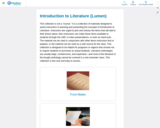
This is a resource for teaching an introduction to literature course.
This material would be useful for teaching a course that aims to instruct students on how to read, analyze, and write critically about literature. The resources comprise important terms, readings, and information on how to engage with literary scholarship.
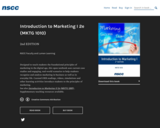
2nd EDITION
Short Description:
Designed to teach students the foundational principles of marketing in the digital age, this open textbook uses current case studies and engaging, real-world scenarios to help students recognize and analyze marketing in business as well as in everyday life. Curated OER readings, videos, simulations and other learning activities introduce students to the principles of marketing. See also Introduction to Marketing II 2e (MKTG 2005) . Supplementary teaching resources available.
Word Count: 120900
ISBN: 978-1-990641-17-6
(Note: This resource's metadata has been created automatically by reformatting and/or combining the information that the author initially provided as part of a bulk import process.)

2nd EDITION
Short Description:
Part II of NSCC's Introduction to Marketing. Part 1: Introduction to Marketing I 2e (MKTG 1010). Designed to teach students the foundational principles of marketing in the digital age, this open textbook uses current case studies and engaging, real-world scenarios to help students recognize and analyze marketing in business as well as in everyday life. Curated OER readings, videos, simulations and other learning activities introduce students to the principles of marketing. Send an email to request access. Supplementary Teaching Resources Available.
Long Description:
This NSCC open textbook is adapted from the Lumen Learning openly licenced course Principles of Marketing. The textbook uses current case studies and engaging, real-world scenarios to help students recognize and analyze marketing in business as well as in everyday life. Curated OER readings, videos, simulations and other learning activities introduce students to the principles of marketing.
Word Count: 159000
ISBN: 978-1-990641-19-0
(Note: This resource's metadata has been created automatically by reformatting and/or combining the information that the author initially provided as part of a bulk import process.)
![Introduction to Psychology [Lumen/OpenStax]](https://img.oercommons.org/160x134/oercommons/media/upload/materials/screenshots/materials-course-277125.png)
Supplementary Resources Available - submit a request
Short Description:
Comprehensive coverage of core concepts grounded in both classic studies and current and emerging research, including coverage of the DSM-5 in discussions of psychological disorders. Incorporates discussions that reflect the diversity within the discipline, as well as the diversity of cultures and communities across the globe.
Long Description:
Provides an important opportunity for students to learn the core concepts of psychology and understand how those concepts apply to their lives. A comprehensive coverage of core concepts is grounded in both classic studies and current and emerging research, including coverage of the DSM-5 in discussions of psychological disorders. Incorporates discussions that reflect the diversity within the discipline, as well as the diversity of cultures and communities across the globe.
Word Count: 394938
ISBN: 978-1-998755-22-6
(Note: This resource's metadata has been created automatically by reformatting and/or combining the information that the author initially provided as part of a bulk import process.)
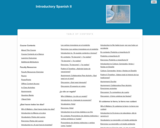
Comprehensive introductory Spanish sequence, providing guidance and practice in reading, writing, listening to, and speaking Spanish. Each module includes thematic vocabulary, sequenced grammar instruction, numerous self-check drills and exercises, open-form communicative activities, scaffolded writing assignments, and reading passages exploring various aspects of life and culture in the Spanish-speaking world. Each grammar section is introduced by a short reading passage to highlight new structures and patterns within their linguistic context. Within each lesson, self-grading practice activities with targeted feedback allow students to learn by doing and track their level of mastery. The text is accompanied by engaging images and videos throughout, and all vocabulary and reading passages include audio files to practice pronunciation and listening comprehension.
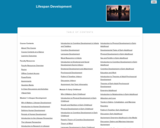
This is an updated version. Introduction to Lifespan Development (Fall 2019)
Lifespan Development examines the physical, cognitive, and socioemotional changes that occur throughout a lifetime. This course covers the essentials in understanding human development, psychological research, and theories of growth and development. Students will come to understand the lifespan perspective and to analyze growth through each of the major stages of development: prenatal development, infancy, early childhood, middle childhood, adolescence, early adulthood (including emerging adulthood), middle adulthood, and late adulthood. The course covers key topics in each of these stages, including major developmental theories, genetics, attachment, education, learning, disabilities, parenting, family life, moral development, illnesses, aging, generativity, and attitudes towards death and dying.
Faculty members may readily adapt the course’s OER content to include new developments and research to equip students with what they need to have success in their sociological journey.
Contributors
This course, based on Lifespan Psychology by Laura Overstreet, includes additional material from the Noba Project, OpenStax Psychology, and additional noteworthy contributions by the Lumen Learning team and:
Sarah Carter
Margaret Clark-Plaskie
Daniel Dickman
Tera Jones
Julie Lazzara
Stephanie Loalada
John R. Mather
Sonja Ann Miller
Nancee Ott
Jessica Traylor